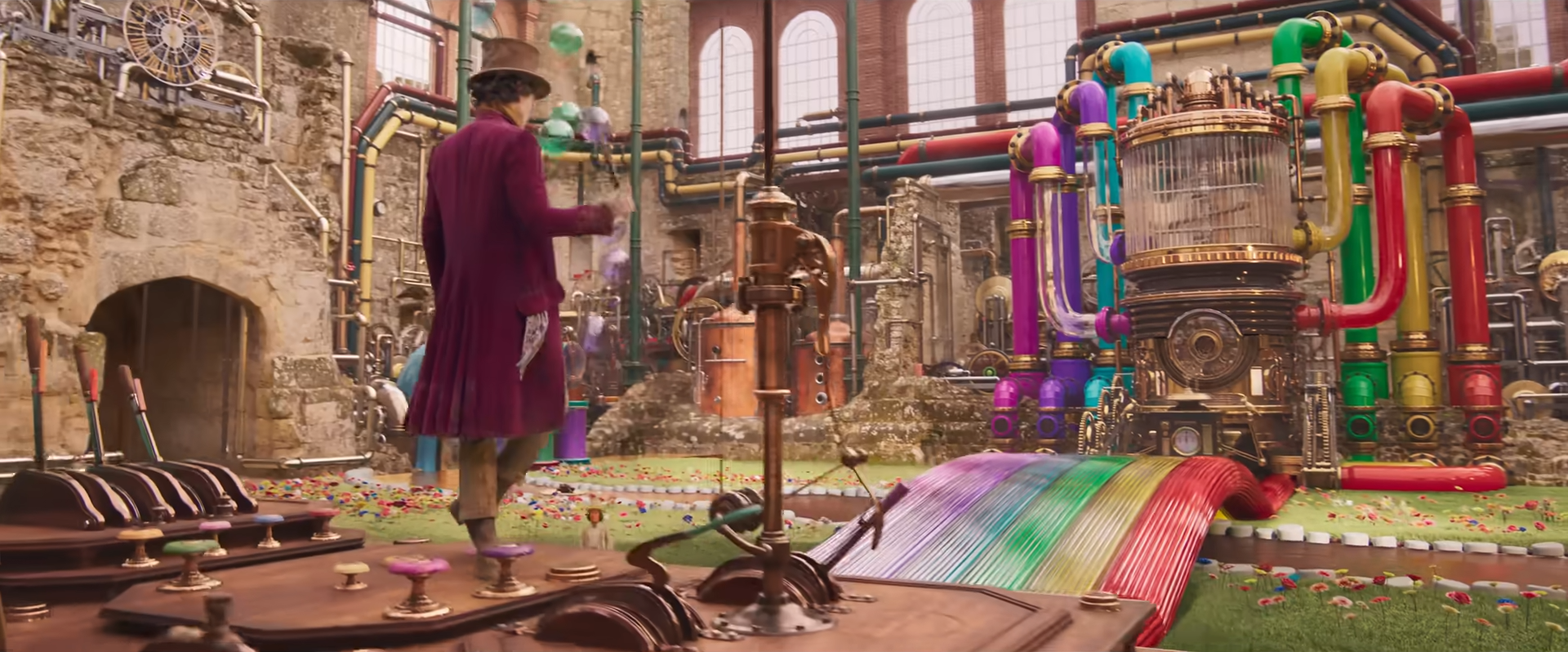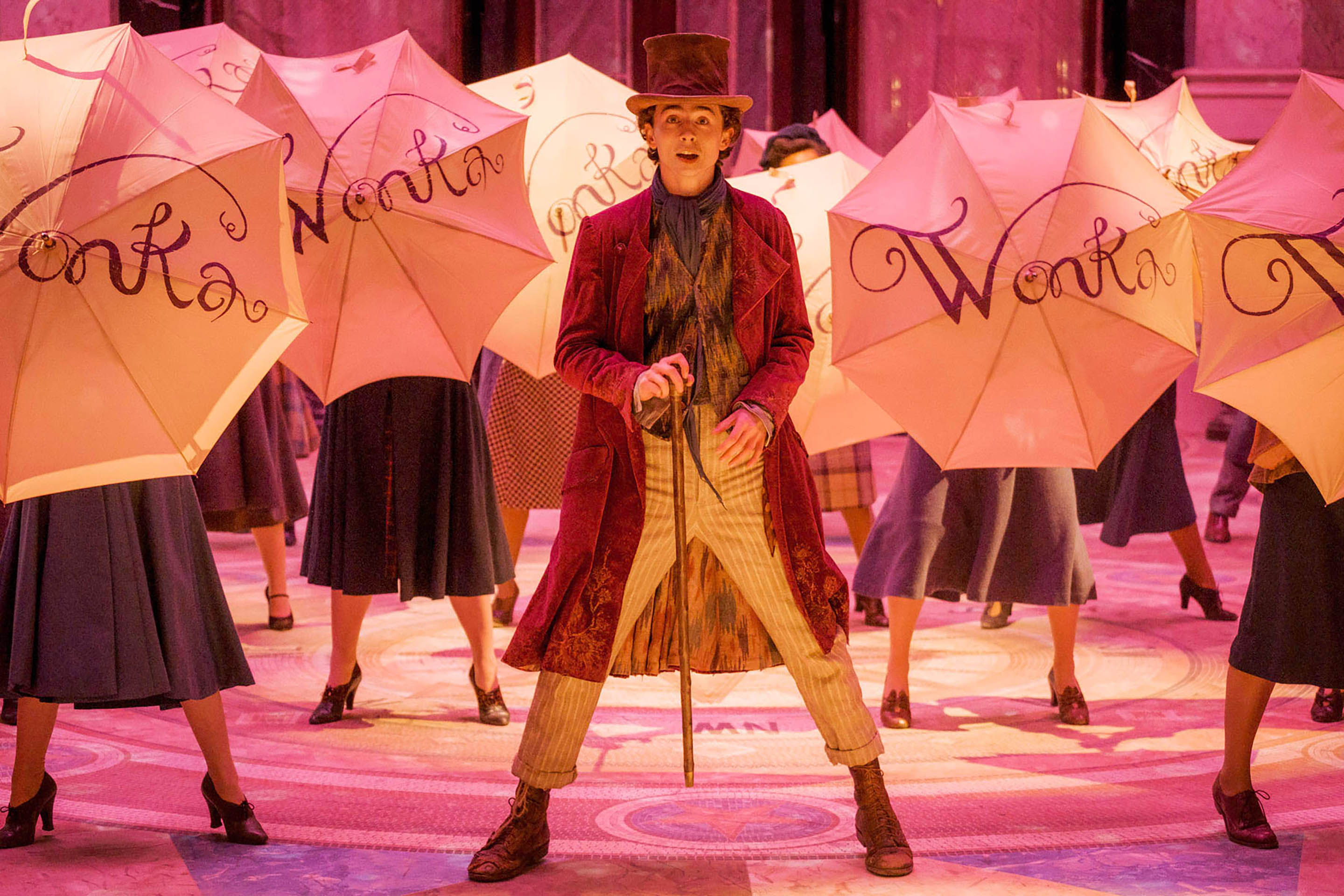Paul King | 1hr 56min

If there is one thing that Paul King’s whimsically spirited prequel understands about the world of Wonka, it is that chocolate is not merely a treat – it is a meal, a drug, an entire system of currency, and the source of all meaning in life. In the urban winter wonderland of 19th century Paris, every corner of society is controlled by those wealthy chocolate makers who feed the sweet-toothed church and state, using their extensive powers to shut out rival entrepreneurs. For what is essentially an origin story covering the young adulthood of Roald Dahl’s famous chocolatier, the stakes are ludicrously high, hilariously blending conventions of crime, heist, prison break, comedy, and musical genres into a delicately crafted piece of cinematic confectionary.
Though delightfully entertaining on its own terms, the decision to connect Wonka’s story directly to the 1971 adaptation Willy Wonka and the Chocolate Factory is ultimately double-edged. Had it been framed as an original spin on the novel, perhaps King might have put a more unique stamp on Dahl’s work, but he still clearly relishes the camp designs of the orange-skinned Oompa Loompas and nostalgic musical cues. Almost every original number here seems like filler between reprises of ‘Pure Imagination’ and ‘The Oompa Loompa Song’, both of which wistfully hint at the future Wonka will set up for himself at his chocolate factory.
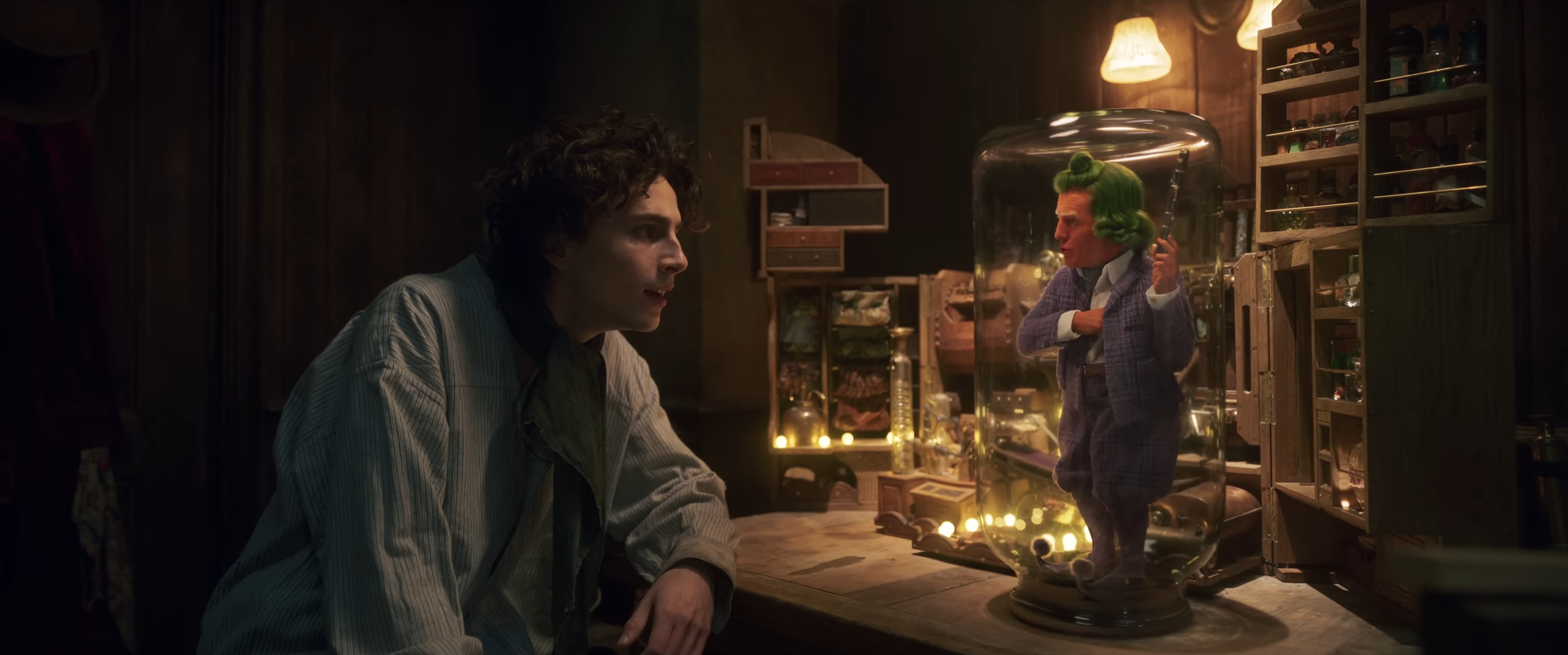
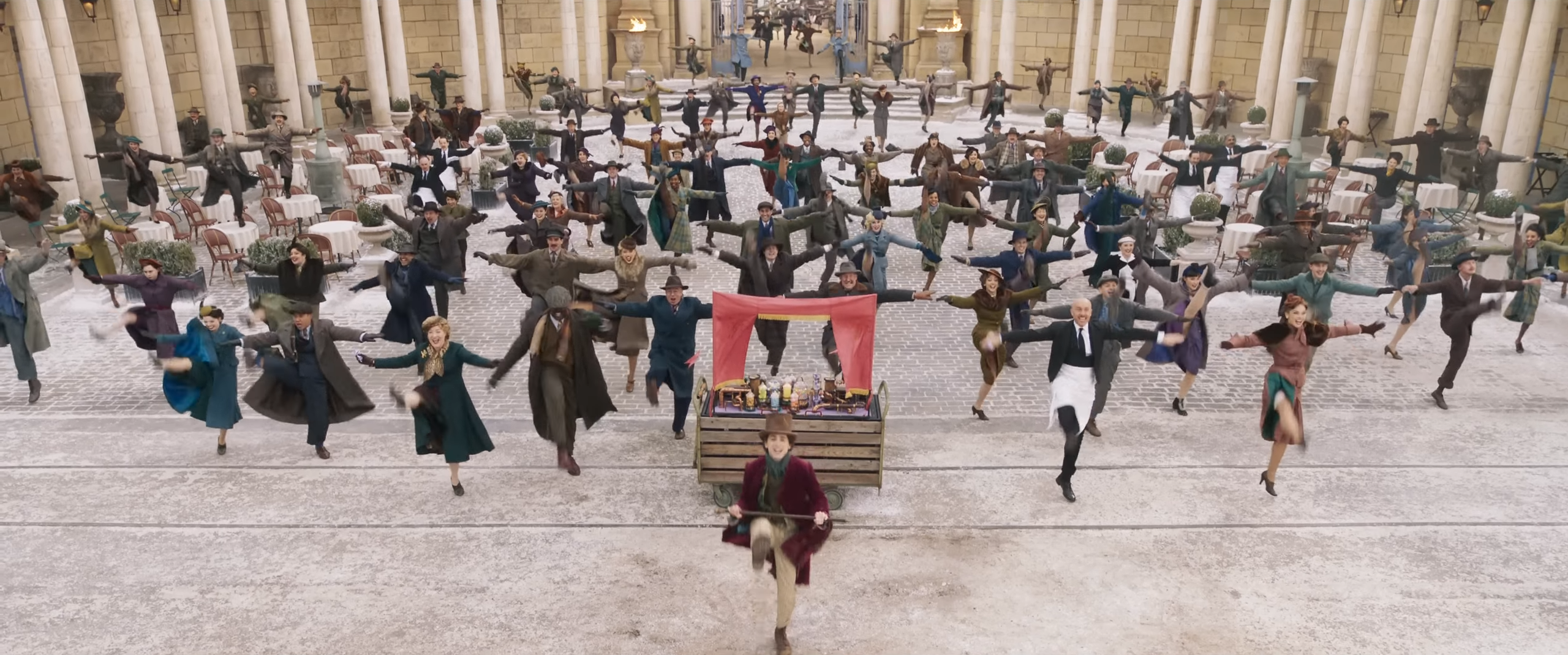
For the most part at least, Wonka largely avoids being weighed down by its intellectual property, letting Timothee Chalamet put his own refreshing spin on the role previously played by Gene Wilder. Given that they are essentially playing the same character at separate points in his life, the differences between both performances are notable. Where Wilder’s Wonka was a mischievous cynic who had grown disillusioned with the world, Chalamet’s is a woefully naïve optimist, overly trusting of strangers and romantically hopeful that he can make his fortune within a day of moving to Paris. This Wonka does not confine himself to a factory, but effortlessly builds a network of allies and joyfully dances atop the glass ceiling of the Grand Palais with his closest friend, street urchin Noodle. Armed with nothing but a small case of enchanted items and chocolates, he proves his resourceful intellect from day one, even as he struggles against scheming competitors and greedy proprietors.
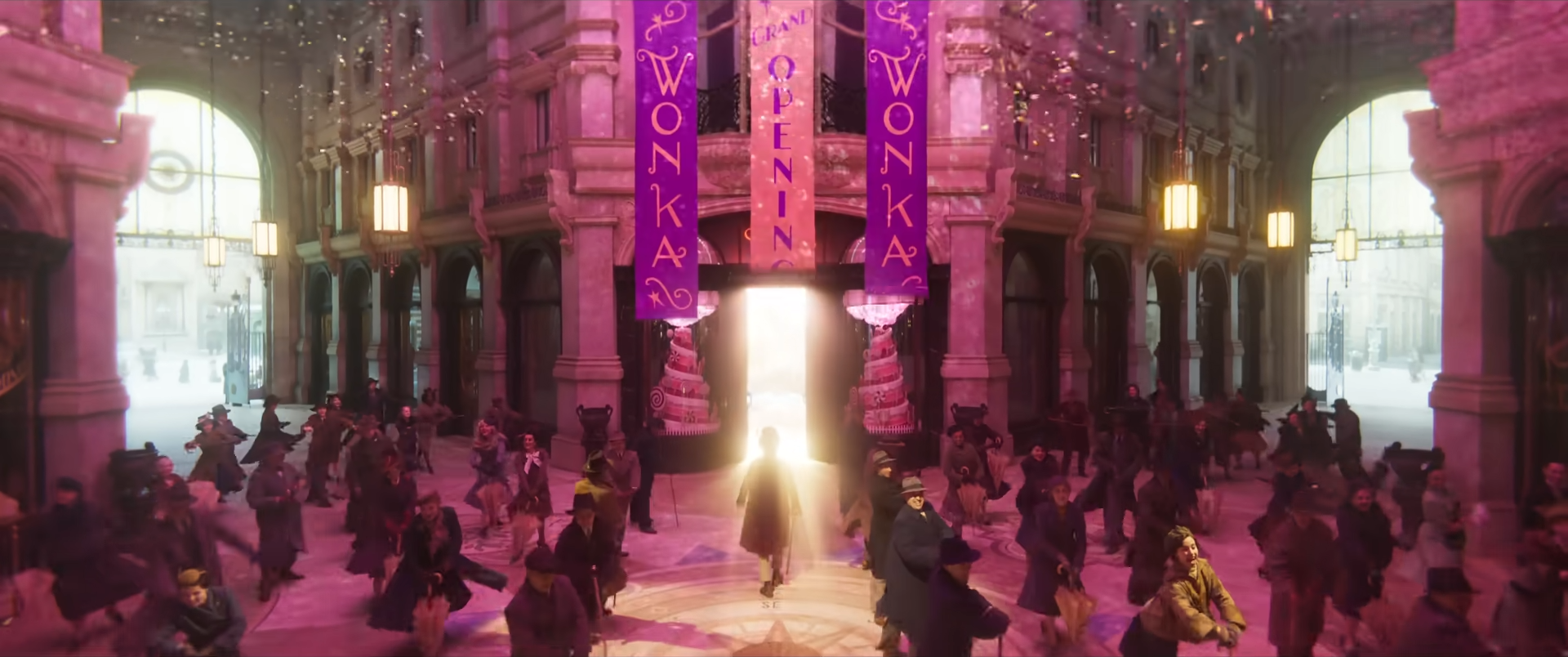
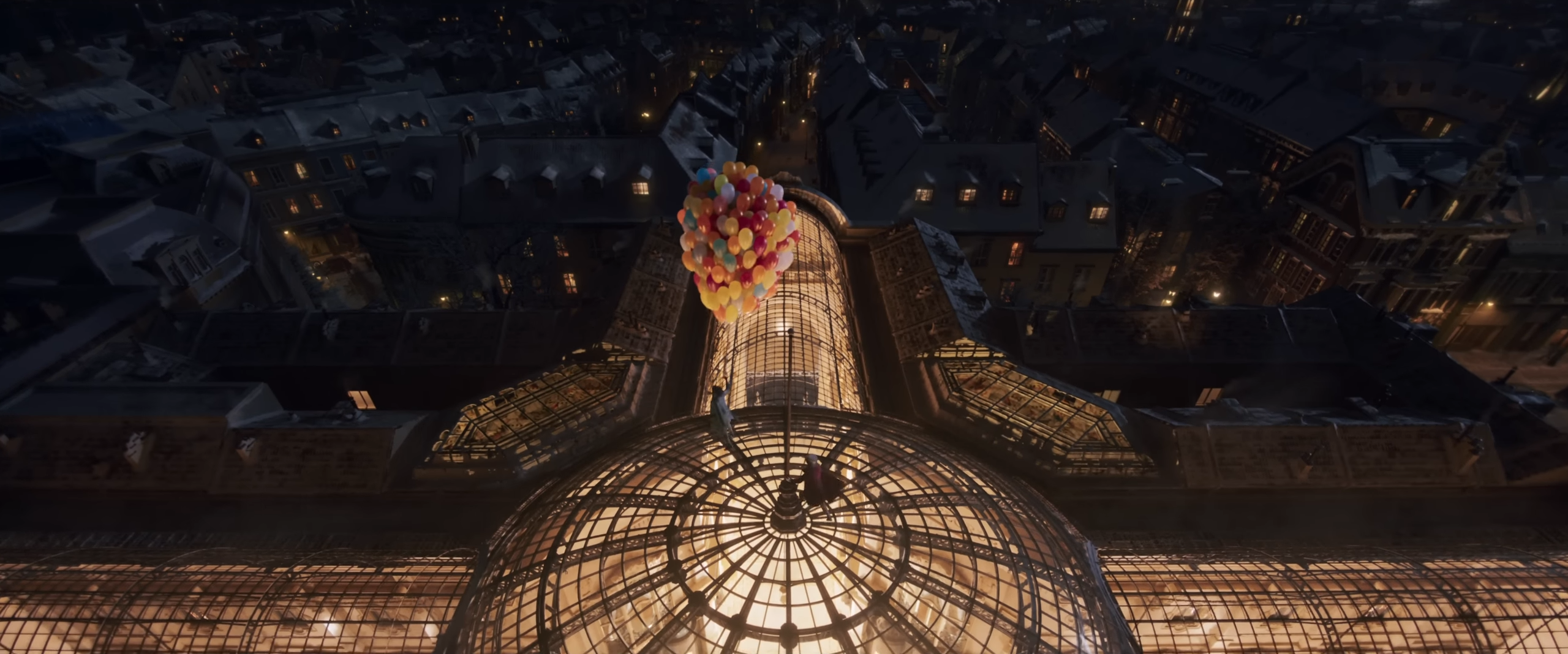
The cast that King gathers around Chalamet is similarly impressive, drawing on old collaborators from The Mighty Boosh like Rich Fulcher and Simon Farnaby, as well as Sally Hawkins and Hugh Grant from the Paddington movies. Joining his troupe for the first time as well are the comedic talents of Rowan Atkinson, Matt Lucas, Keegan Michael-Key, and Olivia Colman, the latter of whom particularly impresses as a greasy, Madame Thenardier-type con artist and innkeeper. There isn’t a weak link in this ensemble, each carrying through the eccentric wit, gentle slapstick, and charming sincerity that King has built into the fabric of his semi-magical world.
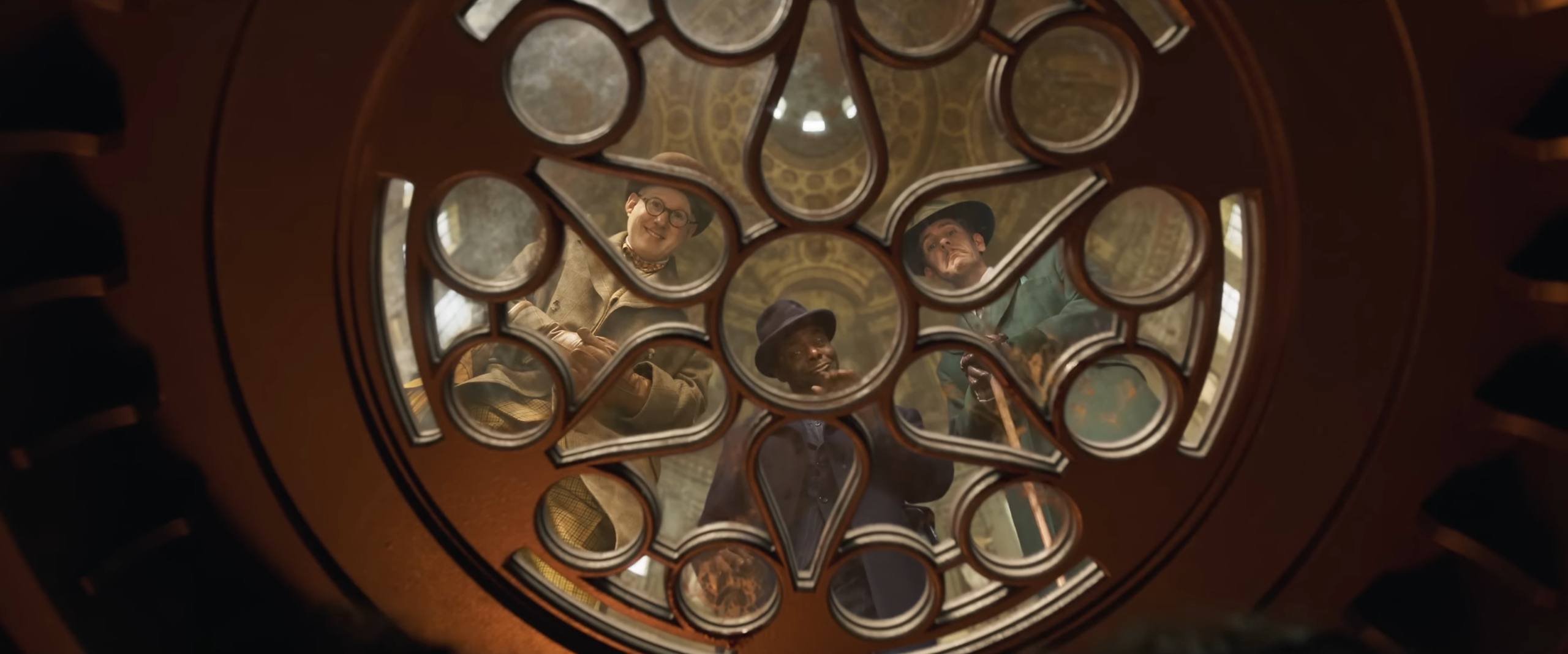
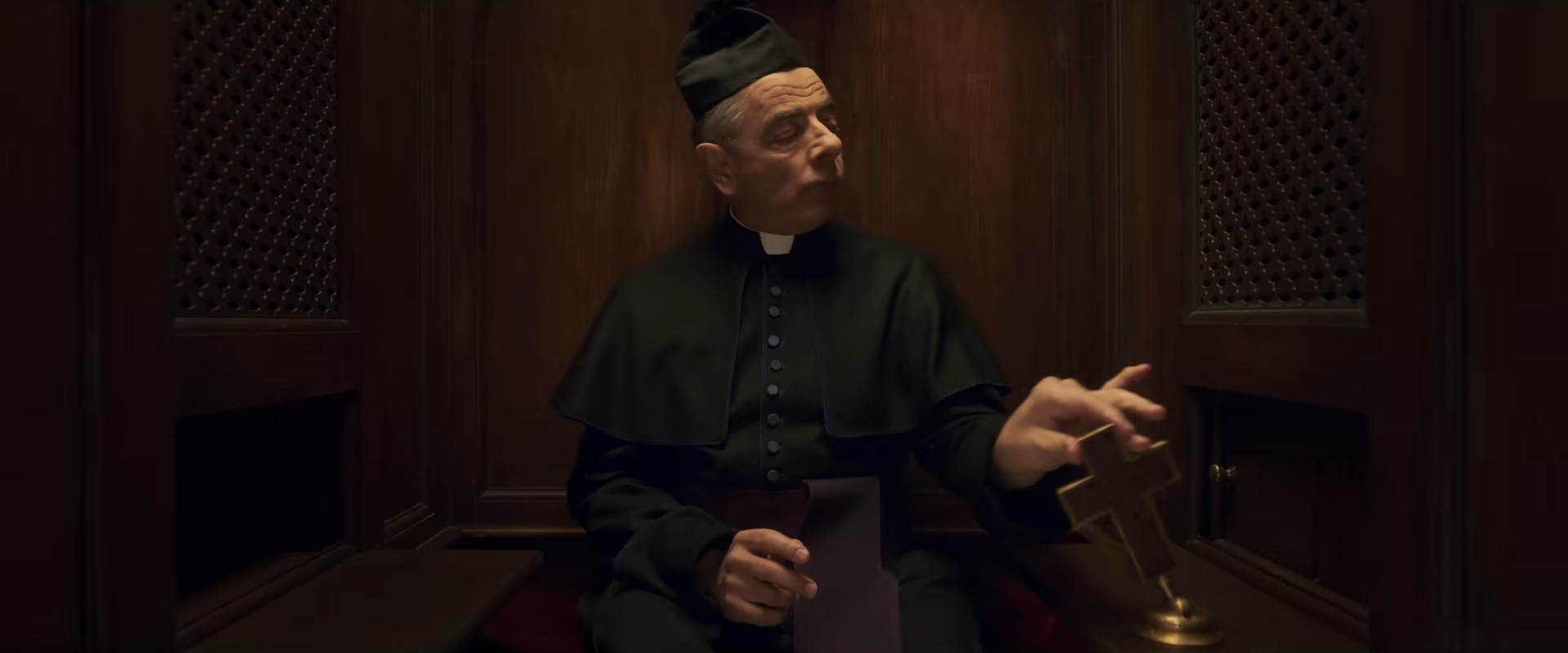
Next to these lively performances, King’s playful scene transitions and bouncy choreography similarly move the humour along at a rhythmic pace, though it is the production design which most crucially connects Wonka’s boundlessly creative ethos to his candy-coloured environment. The careful curation of pink, purple, and red palettes sets an air of warm festivity against the snow flurrying through Paris’ streets, while props and set pieces are as imaginatively bizarre in their visual conception as they are in their narrative functions. When Wonka finally sets up his shop at the Galeries Gourmet, these impossible visuals only continue to heighten with candy cotton clouds circling a giant, blossoming tree growing in the centre.
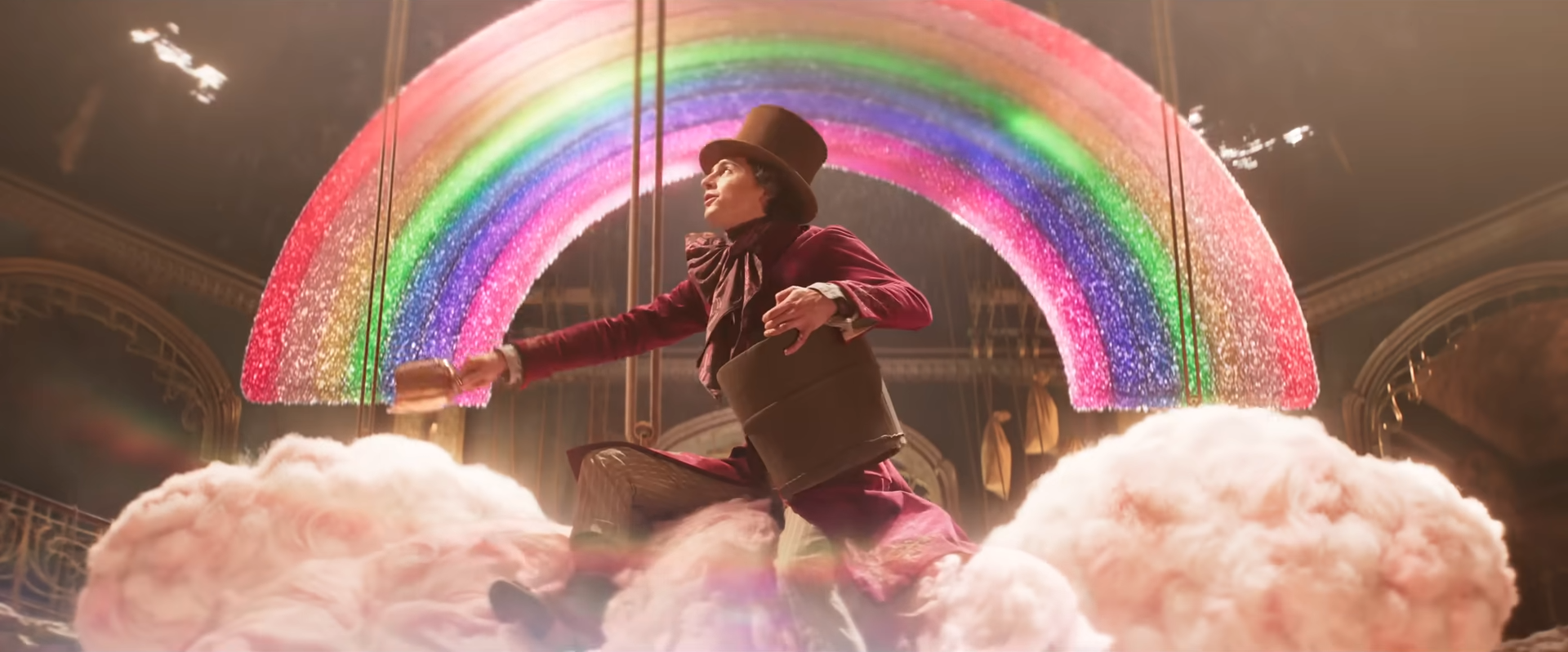
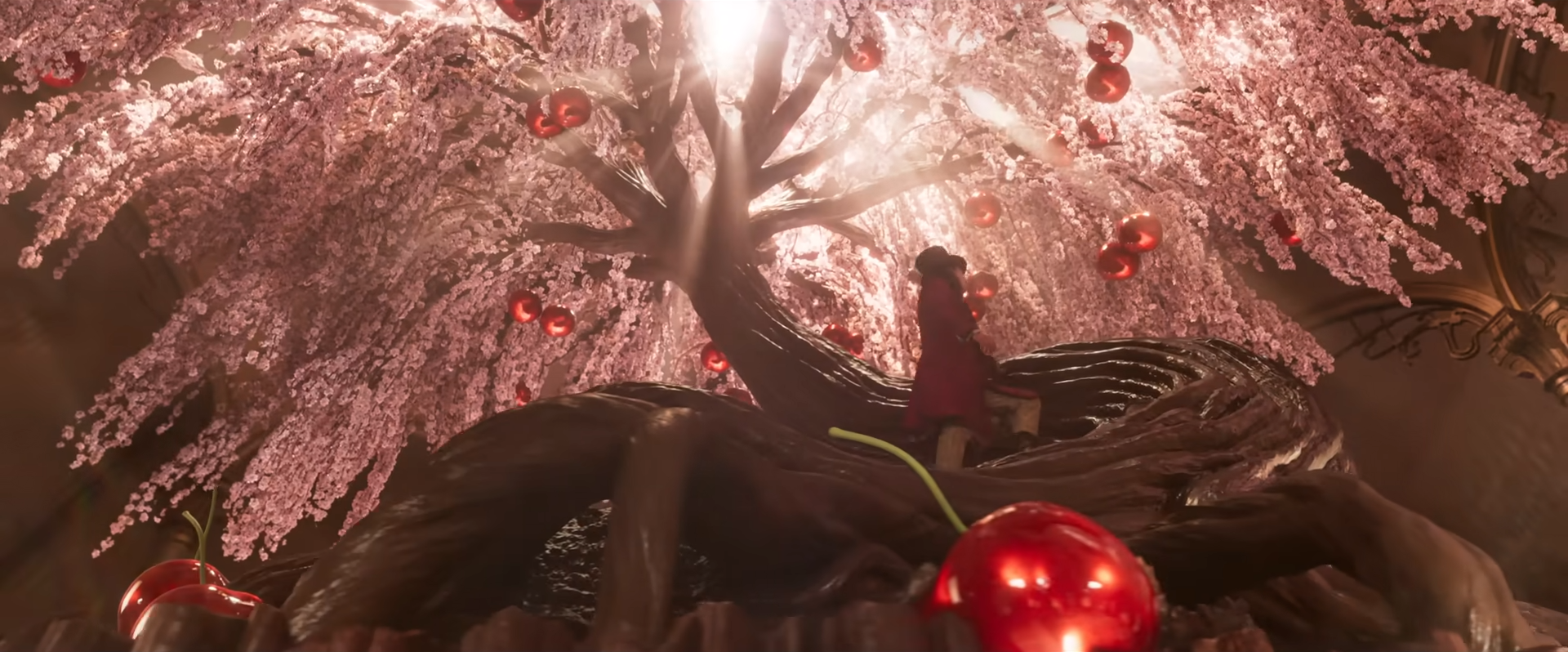
Given that Wonka’s candy also has physiological effects on consumers, from intoxicated overconfidence to spontaneous flying, it is no wonder the Chocolate Cartel see him as such a threat. The culmination of their sabotage arrives in a climactic display of remarkably economical storytelling, knitting about a dozen plot threads together into a tightly woven pay-off not unlike the final acts of the Paddington films. Giant questions such as the mystery of Noodle’s parentage are answered, but even more impressive is the intertwining of seemingly irrelevant plot points such as Slugworth’s extraordinarily firm handshake, Wonka’s illiteracy, and his friends’ incredibly niche skillsets. There are no loose ends to be found in this tidy bow of a resolution, save for those which lead directly into Dahl’s story. Wonka is so easily digestible, it might as well have been made by the chocolatier himself.
Wonka is currently playing in theatres.
